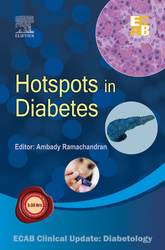「重要なお知らせ:日本語書籍をご購入いただき、eLibraryをご利用の皆さまへ」
エルゼビアは、より快適にサービスをご利用いただくため、システムの重要なアップ
デートを実施いたしました。
現在eLibraryで日本語電子書籍をご利用のお客様は、今後より高いアクセシビリティとセ
キュリティを備えた新しいプラットフォーム「eBooks+」へアカウントが移行されてい
ます。eBooks+のご利用については
こちらよりご利用・ご登録ください。
Book Description
Diabetes is one of the most important non-communicable lifestyle diseases. Diabetes is a multifaceted disorder which possibly influences and impacts body pathophysiology by different mechanisms and in varied ways. Diabetes has a very distinguished impact on cardiovascular system and plays a detrimental role in development of cardiovascular disorders. Metabolic memory is used to describe the impact of exposure to glucotoxicity, lipotoxicity and other metabolic disturbances, either as an adverse or a beneficial cell response which determines the later development of vascular complications. Terms such as metabolic imprint, legacy effect, glycemic memory or latent hyperglycemic damage are also used. Diabetes has significant impact on different facets of life. Diabetes has a distinguished but significant impact on development of various cancers. Diabetes has a positive, negative and even neutral impact on pathogenesis and progression of cancer depending upon the tumor site. On the contrary, cancer also has a significant effect on diabetes development and management. These facets tend to get overlooked in the study of diabetes development and management. All these aspects are being thoroughly covered in this project so as to facilitate better management of diabetics.


 (0 rating)
(0 rating) 





